In a move that’s turning heads in both the crypto and sustainability worlds, DevvStream, a leading carbon management firm, announced on August 1, 2025, that it’s investing $10 million in Bitcoin and Solana to fuel its ambitious carbon credit tokenization strategy. This isn’t just another company dipping its toes into digital assets—it’s a bold step toward merging blockchain technology with environmental finance, aiming to revolutionize how carbon credits are created, traded, and valued. Let’s break down what this investment means, how it fits into DevvStream’s vision, and why it’s a big deal for the future of green investing.
The Strategy Behind the Investment
DevvStream isn’t throwing money at crypto for the sake of hype. The $10 million, drawn from an initial tranche of a $300 million senior secured convertible note agreement with Helena Partners, is part of a carefully crafted treasury strategy. The company has allocated 75% of the net proceeds—roughly $7 million—to purchase Bitcoin and Solana, viewing these assets as both a store of value and a foundation for its blockchain-based initiatives. Bitcoin, known for its liquidity and stability as a digital reserve asset, provides financial ballast, while Solana’s high-speed, low-cost blockchain is ideal for tokenizing carbon credits at scale.
This investment marks the launch of DevvStream’s broader $300 million asset-backed digital infrastructure and sustainability strategy, announced in July 2025. By integrating crypto reserves with real-world asset tokenization, the company aims to reduce equity dilution, enhance capital efficiency, and open new revenue streams through staking yields and crypto-backed credit options. As Sunny Trinh, DevvStream’s CEO, put it, “Deploying our treasury strategy with Bitcoin and Solana marks a critical step in connecting carbon markets to the digital economy.”
Tokenizing Carbon Credits: A Game-Changer
So, what’s carbon credit tokenization, and why does it matter? Carbon credits are tradable units representing one ton of CO2 emissions avoided or removed, used by companies to offset their carbon footprints. But the carbon market has long struggled with transparency, liquidity, and accessibility. Enter blockchain. By tokenizing carbon credits—converting them into digital assets on a blockchain like Solana—DevvStream aims to make these credits more transparent, traceable, and easier to trade globally.
Tokenization could democratize access to carbon markets, allowing smaller investors to buy fractions of credits and enabling faster, cheaper transactions. It also aligns with DevvStream’s partnership with Devvio, whose blockchain platform streamlines certification and sales, and Xpansiv, the world’s largest environmental credit exchange. With contracts already in place to generate up to 5.5 million carbon credits annually, worth roughly $80 million at current prices, DevvStream is positioning itself as a leader in this emerging space.
Why Bitcoin and Solana? A Strategic Choice
Choosing Bitcoin and Solana wasn’t random. Bitcoin, often called digital gold, offers a non-correlated store of value, hedging against market volatility and providing liquidity for future credit facilities. Solana, on the other hand, is a high-throughput blockchain capable of processing thousands of transactions per second at minimal cost—perfect for tokenizing and trading carbon credits at scale. DevvStream sees Solana as the infrastructure for its sustainability-linked projects, enabling real-time tracking and verification of environmental assets.
This dual approach reflects a broader trend of companies diversifying their treasuries with crypto. Unlike speculative bets, DevvStream’s investment is tied to tangible outcomes: scaling its carbon credit portfolio and building a blockchain-based platform that could set a global standard for carbon markets. The company’s plan to expand its $300 million credit facility, if approved, would further amplify these efforts, providing capital to acquire more projects and tokenize additional assets.
DevvStream’s Track Record: A Solid Foundation
DevvStream isn’t new to the carbon game. Founded in 2021, the Calgary-based firm operates across three pillars: managing offset portfolios (nature-based, tech-based, and sequestration credits), investing in and acquiring projects, and developing green initiatives like EV charging networks. Its multi-year agreements, like a 2023 deal to supply 250,000 credits to a major energy company and a 2024 contract for 25,000 compliance credits under Canada’s Clean Fuel Regulations, show strong market demand.
The company’s exclusive access to Devvio’s corporate platform and partnerships with United Cities for project origination give it a competitive edge. With a management team holding 63% of shares and 78% of stock in a three-year escrow, DevvStream’s leadership is deeply committed to long-term success. This isn’t a fly-by-night operation—it’s a company with skin in the game, backed by a proven business model akin to streaming and royalty giants.
Challenges and Opportunities Ahead
The road to tokenizing carbon credits isn’t without bumps. The crypto market is volatile, and while Bitcoin and Solana are established, price swings could impact DevvStream’s treasury. Regulatory uncertainty in both crypto and carbon markets poses another risk, especially as global standards like the EU’s Carbon Border Adjustment Mechanism and the U.S. Inflation Reduction Act evolve. Plus, competition is heating up, with other platforms vying to dominate the digital carbon space.
Still, the opportunities are massive. McKinsey predicts the carbon market must grow 5-15x by 2030 and 100x by 2050 to meet global demand, driven by net-zero commitments from companies like Microsoft and Amazon. DevvStream’s blockchain approach addresses the market’s pain points—transparency and liquidity—positioning it to capture a slice of this growth. If successful, its platform could become a blueprint for how environmental assets are managed in a digital-first world.
The Bigger Picture: Sustainability Meets Innovation
DevvStream’s $10 million crypto investment is more than a financial play—it’s a vision for a future where sustainability and profitability go hand in hand. By leveraging Bitcoin’s stability and Solana’s scalability, the company is building a bridge between carbon markets and the digital economy. This move aligns with growing interest in ESG investing and decentralized finance, where blockchain’s transparency and efficiency are reshaping traditional markets.
For investors, it’s a chance to back a company at the forefront of two megatrends: climate action and blockchain adoption. For the planet, it’s a step toward making carbon markets more accessible and effective in the fight against climate change. As DevvStream scales its platform and tokenizes more assets, it could redefine how we value and trade environmental impact.
A Bold Step Forward
DevvStream’s $10 million investment in Bitcoin and Solana is a watershed moment for carbon credit tokenization. It’s a testament to the company’s belief that blockchain can transform environmental finance, making carbon markets more transparent, liquid, and inclusive. With a solid track record, strategic partnerships, and a $300 million war chest on the horizon, DevvStream is poised to lead this charge. Whether you’re a crypto enthusiast, a green investor, or just curious about the future, this is a story worth watching.
Sources:
- DevvStream plants crypto roots with Bitcoin and Solana treasury debut | crypto.news
- DevvStream Deploys $10M into Bitcoin and Solana as Part of Crypto Strategy | moneycheck.com
- DevvStream • Carbon Credits | carboncredits.com
- Bitcoin News Today: DevvStream Allocates $10M to Bitcoin and Solana for Carbon Credit Tokenization | coin24h.com
- DevvStream Secures $10M to Launch $300M Asset-Backed Carbon Strategy Using Blockchain Technology | ainvest.com
- DevvStream Inks Multi-Year Purchase Deal for 250K Carbon Credits | carboncredits.com
- DevvStream Announces Multi-Year Agreement For The Sale Of Carbon Credits | carbonherald.com
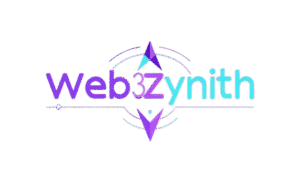
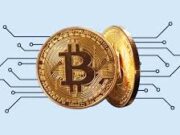

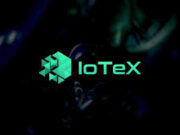
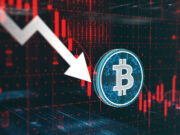
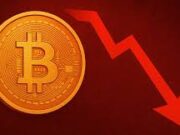


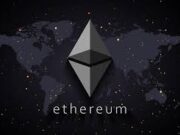


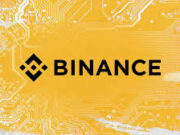

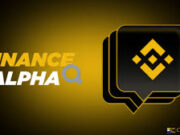


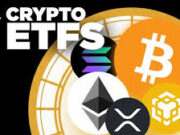



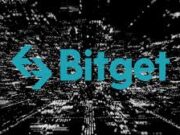
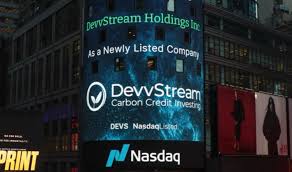
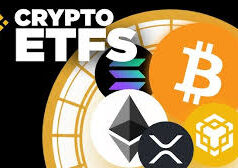
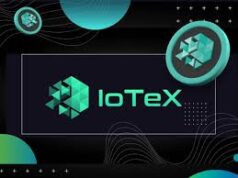




That’s next-level! Tokenizing green assets sounds like the future
how do they make sure it’s legit and not just greenwashing?
I’m new to this crypto-green stuff—how does tokenizing carbon credits even work?
Mixing green tech with blockchain could be huge for the planet.
Yo, DevvStream dropping $10M into BTC and Solana for carbon credits?